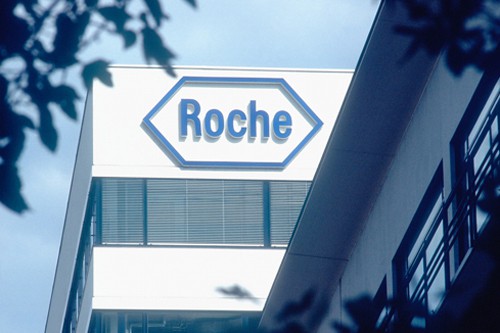
Roche will present a slew of new data at the American Society of Hematology’s (ASH) annual meeting next month, showcasing new immunotherapies, treatment combinations, novel endpoints and fixed-duration regimens from its blood disease portfolio.
The company will present 90 abstracts, including 17 oral presentations.
The new data, which includes results from three pivotal studies, will no doubt enhance the reputation of Roche, which has been developing medicines for malignant and non-malignant blood diseases for more than 20 years.
The star of the show will be the first presentation of efficacy and safety data from its phase 3 POLARIX study for its antibody-drug conjugate Polivy (polatuzumab vedotin) in diffuse large B-cell lymphoma (DLBCL). The company released topline results of the study in August.
In the study, Roche’s Polivy added to MabThera/Rituxanplus chemotherapy went head-to-head with the standard-of-care regimen called R-CHOP (MabThera/Rituxan, cyclophosphamide, doxorubicin, vincristine and prednisone). The study met its primary endpoint of improving progression-free survival, with newly diagnosed patients with DLBCL on the Polivy regimen experiencing a reduced likelihood of disease worsening or death, said the company.
Polivy – a first-in-class anti-CD79b antibody-drug conjugate – is already available in relapsed or refractory DLBCL but Roche believes patients would benefit from a first-line indication.
“Since 40% of people with DLBCL relapse after initial therapy, achieving meaningful treatment effects in the front-line setting has the potential to be transformative,” said chief medical officer and head of R&D Dr Levi Garraway. “This Polivy regimen is the first in two decades to improve progression-free survival in DLBCL compared to the standard of care.”
Roche will also present pivotal data showing that mosunetuzumab, a potential first-in-class CD20xCD3 T-cell engaging bispecific antibody, prompted high response rates in relapsed or refractory follicular lymphoma (FL).
FL is the most common slow-growing form of blood cancer non-Hodgkin lymphoma, which often returns after initial therapy. This data suggests that mosunetuzumab could be appropriate for patients that have already received two or more therapies.
Finally, interim data from the phase 3 HAVEN 6 study will be presented at the ASH meeting showing that Hemlibra (emicizumab) had a favourable safety and efficacy profile for people with moderate or mild haemophilia A without factor VIII inhibitors.
“For 20 years, we have remained committed to deepening our understanding of many benign and malignant blood disorders in order to better meet the urgent needs of patients with these diseases,” added Garraway. “Our data at ASH reinforces our conviction that following the science and developing versatile treatment approaches leads to improved outcomes for patients in increasingly meaningful ways.”




